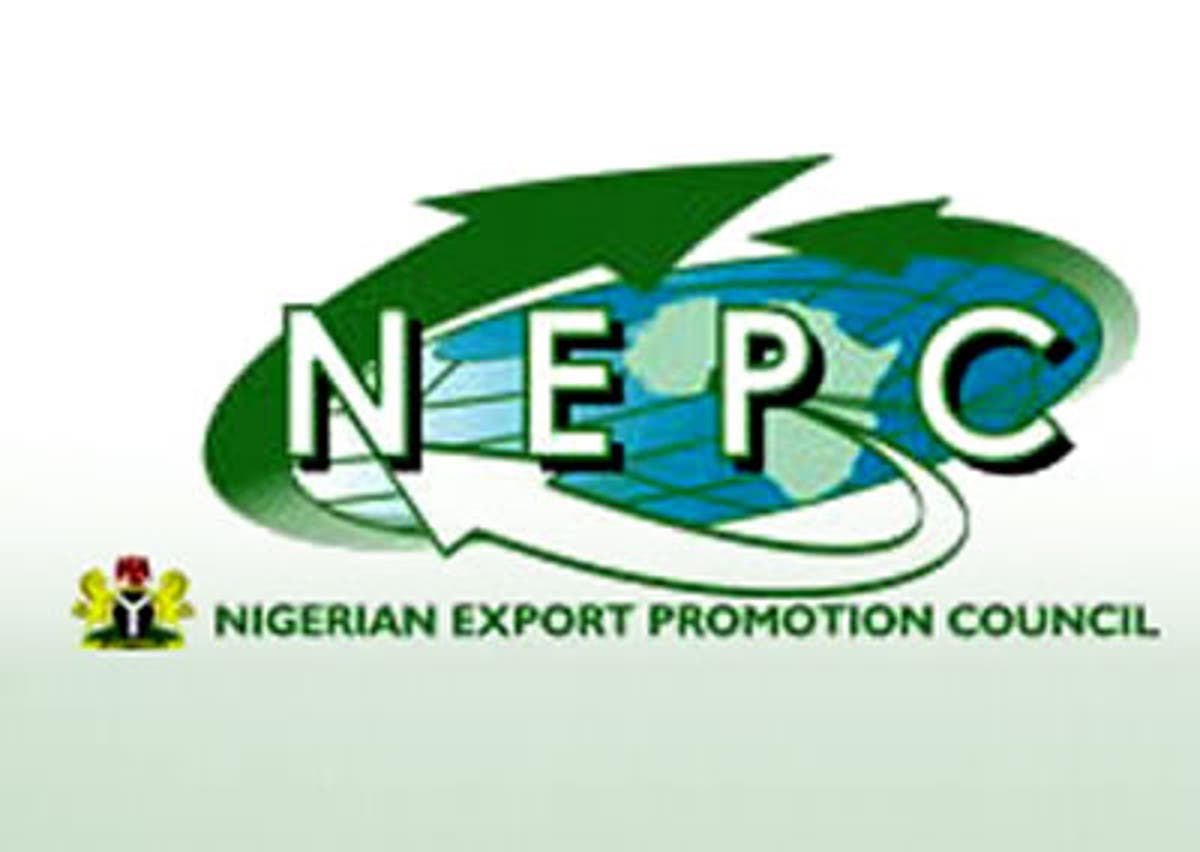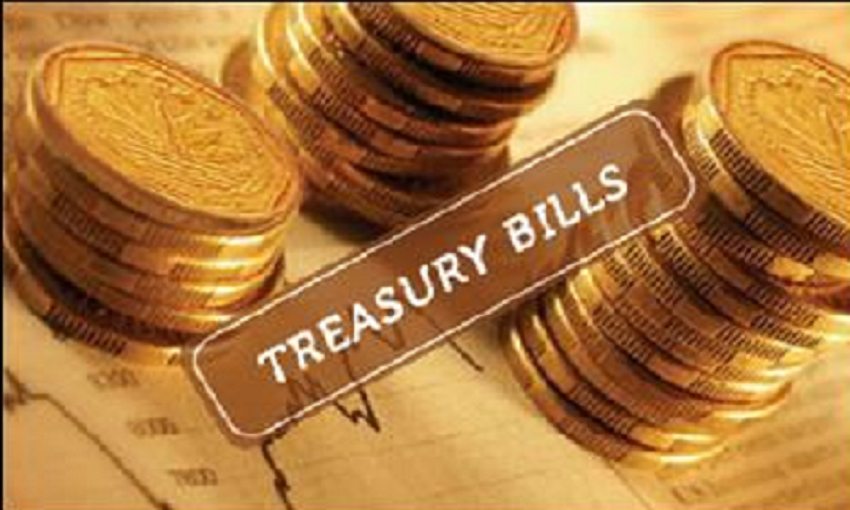Economy
NEPC, NPA, Others Collaborate to Boost Nigerian Export Efforts

By Adedapo Adesanya
The Nigeria Export Promotion Council (NEPC) has disclosed that it was working with the Nigerian Ports Authority (NPA) to promote the use of alternative ports in the country.
It also noted that it was working on the construction of domestic export warehouses and common facility process centres for export commodities to enable the country to reap the benefits of the African Continental Free Trade Agreement (AfCFTA).
The Chief Executive Officer of the council, Mr Olusegun Awolowo, made the remark at a webinar themed AfCFTA: Revamping Nigeria’s Infrastructure for Global Trade organised by Arbiterz Media Limited.
He explained the moves would ease the export processes in the country, noting that the projects and initiatives would be completed and ready for take-off in the next six months.
He further said that the agency has identified 22 priority products for export as part of its zero oil plan to boost the country’s foreign exchange (forex) earning capacity.
“We are working on domestic export warehouse/aggregation centres to reduce the cost of doing business by MSMEs exporting companies. We are looking at Tincan and Apapa Ports so that we can decongest those areas.
“We are also working on common facility process centres for many of our commodities including shea butter, cashew among others in order to reduce the cost of fashion, cosmetics and agro-products to mention a few.
“We are working with NPA on trying to get other ports ready and decongest the Lagos ports. Last month, we did about 7,000 tons of cocoa from Calabar Port, which has never been done before,” he said.
On her part, Executive Secretary, Nigerian Investment Promotion Council (NIPC), Ms Yewande Sadiku, emphasised the importance of the internal work that Nigeria needs to do with ensuring that the private sector fully understands the implications of AfCFTA and that the government pro-actively empowers the private sector to leverage Nigeria’s clear competitive advantage for benefit.
Mrs Hope Yongo, who represented the MD/CEO of Nigerian Export-Import Bank (NEXIM), said the lender was promoting the regional sealink project under an SPV-PPP framework, adding that the project would, hopefully, commence by the fourth quarter (Q4) 2021 to enhance Nigeria’s trade connectivity under AfCFTA.
Economy
Nigeria’s 364-Day Treasury Bills Rate Down 0.13% Amid Strong Demand

By Dipo Olowookere
Increased appetite for one-year Nigerian treasury bills forced the Central Bank of Nigeria (CBN) to trim the stop rate at primary market auction (PMA) conducted on Wednesday.
Business Post reports that the rate was brought down by 0.13 per cent during the exercise by the bank to 22.80 per cent from the 22.93 per cent it cleared in the preceding PMA.
It was observed that investors showed significant interests in the tenor at midweek, though lower than the previous auctions.
At the session, the CBN brought to the market N256.5 billion worth of the 12-month bills but received bids valued at N888.4 billion, showing that subscribers were ready to lock their funds in the long-dated asset class.
However, at the close of the exercise, the central bank allotted N512.0 billion worth of maturity to investors after it cut the top rate, which some investors wanted as high as 28.00 per cent, according to details of the exercise obtained by this newspaper.
Unfortunately, the other tenors, the 91-day and 181-day T-bills, did not get the same attention as the 364-day maturity on Wednesday.
The apex bank was at the PMA with N10.8 billion worth of the three-month bills but only received bids valued at N8.8 billion, which was fully allotted to investors, but the stop rate was left intact at 18.00 per cent at the close of the exercise.
As for the six-month tenor, it recorded a slight oversubscription during the exercise after the central bank offered for sale N8.4 billion but got subscriptions worth N10.6 billion, though the allocation was lowered to N7.0 billion with the stop rate unchanged at 18.50 per cent.
At the primary auction on Wednesday, the CBN intended to sell treasury bills valued at N275.7 billion but ended up allotting N527.8 billion after receiving offers worth N907.8 billion, indicating strong demand for the government debt securities.
Economy
Tinubu to Present 2025 Budget of N47.9trn to NASS December 17

By Aduragbemi Omiyale
On Tuesday, December 17, 2024, President Bola Tinubu will present the 2025 budget to a joint session of the National Assembly.
The size of the 2025 Appropriation Bill is about N47.9 trillion and would be presented to the parliament for approval.
Speaking at the plenary on Thursday, December 12, 2024, the President of the Senate, Mr Godswill Akpabio, said the presentation by Mr Tinubu would be at the chamber of the House of Representatives.
However, it is not certain if the lawmakers will pass the budget before December 31 to allow for a recent budget cycle of January to December.
Recall that on December 3, the senate approved the Medium Term Expenditure Framework and Fiscal Strategy Paper (MTEF/FSP) for 2025 to 2027.
This was after the President presented this the National Assembly on November 19 ahead of the consideration of the 2025 budget proposal.
In the MTEF/FSP, the government said it planned to borrow about N9.22 trillion from local and foreign sources to finance the budget deficit.
It pegged the crude oil benchmark at $75 per barrel and a daily oil production of 2.06 million barrels at an exchange rate of N1,400 to $1, and a targeted gross domestic product (GDP) growth rate of 6.4 percent.
At the plenary today, Mr Akpabio informed his colleagues that, “The President has made his intention known to the National Assembly to present the 2025 budget to the joint session of the National Assembly on December 17, 2024.”
Economy
Nigeria Adds 150,000 b/d Crude Production in November 2024

By Adedapo Adesanya
Nigeria added 150,000 barrels per day to its crude production in November 2024 as it continues to pursue an ambitious 2 million barrels per day target.
According to the Organisation of the Petroleum Exporting Countries (OPEC), Nigeria’s oil production rose to 1.48 million barrels per day in November, up from 1.33 million barrels per day the previous month.
In its Monthly Oil Market Report (MOMR), OPEC revealed that at 1.48 million barrels per day, it is the continent’s leading oil producer, surpassing Algeria’s 908,000 barrels per day and Congo’s 268,000 barrels per day.
Business Post reports that OPEC doesn’t account for condensates, which Nigeria’s accounts for in its broader 2 million barrels per day target.
Despite the surge in production levels, Nigeria is still under producing its 1.5 million barrels per day output quota under a deal involving OPEC and 10 other producers known as OPEC+.
OPEC said it relied on primary data gotten through direct communication, noting that secondary sources reported 1.417 million barrels per day as Nigeria’s crude production in November — up from 1.4 million barrels per day in October.
The data also shows that OPEC’s total oil production among its 12 members rose by 104,000 barrels per day in the month under review.
According to secondary sources, the total of the 12 OPEC countries’ crude oil production averaged 26.66 million barrels per day in November 2024.
“Crude oil output increased mainly in Libya, Iran, and Nigeria, while production in Iraq, Venezuela, and Kuwait decreased”, OPEC said.
“At the same time, total non-OPEC DoC crude oil production averaged 14.01 mb/d in November 2024, which is 219 tb/d higher, m-o-m. Crude oil output increased mainly in Kazakhstan and Malaysia,” the organisation added.
In a related development, OPEC trimmed its 2024 and 2025 oil demand growth forecasts for the fifth time this year.
Now, the cartel expects the world’s oil demand growth at 1.61 million barrels per day from the previously 1.82 million barrels per day.
For 2025, OPEC says the world oil demand growth forecast is now at 1.45 million barrels per day, a 900,000 barrels per day cut from the previously expected 1.54 million barrels per day.
On the changes, OPEC says that the downgrade for this year owes to more bearish data received in the third quarter of 2024 while the projections for next year relate to the potential impact that will arise from US tariffs.
-

 Feature/OPED5 years ago
Feature/OPED5 years agoDavos was Different this year
-
Travel/Tourism8 years ago
Lagos Seals Western Lodge Hotel In Ikorodu
-

 Showbiz2 years ago
Showbiz2 years agoEstranged Lover Releases Videos of Empress Njamah Bathing
-

 Banking6 years ago
Banking6 years agoSort Codes of GTBank Branches in Nigeria
-

 Economy2 years ago
Economy2 years agoSubsidy Removal: CNG at N130 Per Litre Cheaper Than Petrol—IPMAN
-

 Banking2 years ago
Banking2 years agoFirst Bank Announces Planned Downtime
-

 Sports2 years ago
Sports2 years agoHighest Paid Nigerian Footballer – How Much Do Nigerian Footballers Earn
-

 Technology4 years ago
Technology4 years agoHow To Link Your MTN, Airtel, Glo, 9mobile Lines to NIN
















